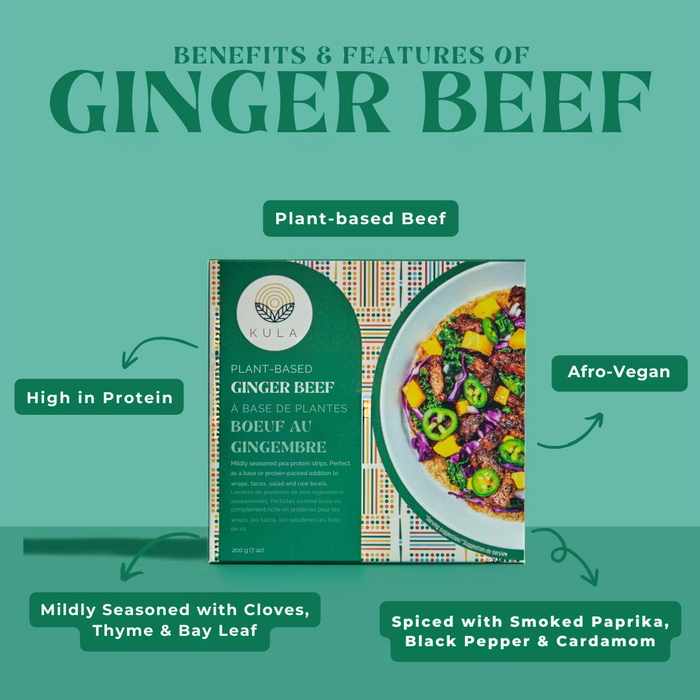Everything About Healthy Food: Advantages of Embracing Plant Based Choices
The discussion surrounding plant-based diets has gained considerable interest in recent years. Many individuals are checking out the potential health advantages, dietary benefits, and ecological effects connected with these dietary choices. As people become extra familiar with their food's influence on wellness and sustainability, questions arise regarding the functionalities of taking on such a way of living. What specific modifications can one expect, and how might these choices reshape not only personal wellness however additionally the planet's future?
Recognizing Plant-Based Diet Plans
Although numerous people associate plant-based diet regimens generally with vegetarianism or veganism, these diets can incorporate a large range of eating patterns that focus on whole, minimally processed plant foods. Such diet plans often include fruits, veggies, entire grains, vegetables, nuts, and seeds, while getting rid of or limiting animal products. This versatility permits individuals to customize their nutritional selections according to dietary needs and personal preferences. Some may take on a primarily plant-based diet regimen while still periodically consuming meat or dairy products, frequently described as a flexitarian strategy. The emphasis continues to be on incorporating more plant foods, which can bring about a varied variety of flavors and meals. Understanding these different analyses of plant-based consuming is vital for appreciating its availability and allure in contemporary food culture.
Wellness Advantages of Plant-Based Foods
The health and wellness advantages of plant-based foods are substantial, offering a nutrient density advantage that supports general wellness. Study indicates that these foods can improve heart health and wellness and play a crucial function in reliable weight monitoring. By including more plant-based choices, people may improve their dietary options and promote long-lasting health and wellness.
Nutrient Density Advantage
Nutrient density plays a vital function in the wellness advantages of plant-based foods, making them a compelling option for those seeking a well balanced diet regimen. Plant-based foods, such as fruits, vegetables, legumes, nuts, and whole grains, are often abundant in crucial vitamins, minerals, and antioxidants while being reduced in calories. This high nutrient density enables individuals to consume less calories while still meeting their nutritional needs. Furthermore, these foods are loaded with nutritional fiber, advertising digestive wellness and helping in weight monitoring. By including nutrient-dense plant-based choices, consumers can boost their total health, support their body immune systems, and decrease the risk of persistent conditions. Inevitably, the nutrient density of plant-based foods highlights their value in a health-conscious way of life.
Heart Health Enhancement

Weight Monitoring Assistance
In enhancement to advertising heart wellness, a plant-based diet plan can substantially aid in weight monitoring. This dietary method stresses entire foods such as fruits, veggies, vegetables, nuts, and whole grains, which are typically reduced in calories and higher in fiber compared to animal-based items. The high fiber material helps boost satiety, minimizing total calorie intake. Furthermore, plant-based diet regimens are often abundant in necessary nutrients while low in harmful fats, making it simpler to keep a healthy weight. Sugar Free Sauces. Study indicates that people who take on a plant-based way of life often tend to have reduced body mass indexes (BMIs) and experience more effective fat burning compared to those who consume meat-heavy diet regimens. Welcoming plant-based choices is a calculated choice for efficient weight management.
Nutritional Worth of Plant-Based Ingredients
Plant-based ingredients are abundant in necessary nutrients, offering a varied array of vitamins, minerals, and antioxidants that add to total health. A comparison of healthy protein resources exposes that while animal items are commonly deemed superior, lots of plant-based choices provide ample protein and various other valuable substances. Understanding the dietary value of these active ingredients can assist people make notified dietary choices.
Crucial Nutrients in Plants
Nutrient-rich components found in plants use a diverse array of crucial nutrients that contribute considerably to overall wellness. These ingredients are rich in vitamins A, C, and K, which support immune feature, vision, and blood clot, respectively. Additionally, plants supply crucial minerals such as calcium, magnesium, and potassium, critical for heart health, muscle function, and bone strength. The existence of fiber in plant-based foods help food digestion and promotes a healthy and balanced gut microbiome. Anti-oxidants, found abundantly in veggies and fruits, help fight oxidative stress and anxiety and reduce inflammation. Additionally, several plant foods are reduced in calories yet high in nutrients, making them an outstanding choice for those seeking to preserve a healthy weight while making sure optimal nutrient intake.
Comparing Protein Sources
Healthy protein resources vary significantly in their nutritional profiles, with plant-based ingredients providing one-of-a-kind benefits. Unlike animal proteins, which typically consist of hydrogenated fats and cholesterol, plant proteins often tend to be reduced in these harmful parts. Legumes, nuts, seeds, and entire grains are rich in important amino acids, fiber, vitamins, and minerals. For example, lentils give high healthy protein content alongside substantial iron and folate, while quinoa is a complete protein, supplying all nine important amino acids. Furthermore, plant-based proteins are often accompanied by antioxidants and phytochemicals that sustain general health. The shift to plant-based healthy protein sources not just enhances dietary intake but likewise straightens with sustainable nutritional practices, lowering environmental impact and advertising long-term health benefits.
Ecological Impact of Plant-Based Consuming
As recognition of climate adjustment grows, numerous people are exploring sustainable nutritional explanation choices that can greatly decrease their ecological impact. Plant-based consuming has actually emerged as a substantial factor to decreasing greenhouse gas emissions, which are mainly related to livestock production. The cultivation of fruits, veggies, grains, and vegetables generally calls for less resources, such as water and land, contrasted to animal farming. In addition, plant-based diet regimens can bring about reduced deforestation, as less land is needed for grazing animals or expanding pet feed. By shifting in the direction of plant-based alternatives, consumers can sustain biodiversity and promote Get the facts healthier communities. On the whole, welcoming plant-based consuming not just advantages individual wellness however additionally represents an important action toward environmental sustainability and conservation initiatives.
Overcoming Common Misconceptions
While numerous individuals identify the benefits of a plant-based diet plan, several misunderstandings usually hinder them from fully embracing this way of life. A typical belief is that plant-based diet regimens lack sufficient protein; however, many plant resources, such as legumes, nuts, and tofu, provide adequate healthy protein. Additionally, some assume that this diet regimen is pricey, when actually, staples like beans, rice, and seasonal veggies can be rather cost effective. One more misconception is that plant-based consuming is overly restrictive, whereas it really uses a varied selection of foods and tastes. Ultimately, numerous stress that a plant-based diet might lead to deficiencies, yet with proper preparation, individuals can get all necessary nutrients, consisting of minerals and vitamins, while delighting in a wide array of tasty dishes.
Tips for Transitioning to a Plant-Based Way of life
Making the shift to a plant-based lifestyle can be an enriching experience, though it usually needs some guidance to navigate the first changes. People are encouraged to start gradually, including more fruits, vegetables, vegetables, and whole grains into their dishes while minimizing meat and dairy intake. Dish planning is necessary; preparing a weekly menu can assist reduce the modification and protect against last-minute unhealthy options. Exploring cooking techniques and brand-new dishes can additionally enhance the experience and keep enjoyment regarding plant-based eating. Furthermore, signing up with support system or neighborhoods can offer inspiration and share important suggestions. Staying notified regarding nourishment assurances well balanced meals, preventing deficiencies while fostering a healthy and balanced, satisfying plant-based way of life.

Delicious Plant-Based Meal Ideas
Exploring tasty plant-based dish ideas can influence people to embrace a more nourishing diet. One preferred choice is a hearty quinoa salad, including cherry tomatoes, cucumber, and a zesty lemon-tahini dressing. An additional favorite is a mouthwatering lentil stew, loaded with carrots, celery, and aromatic natural herbs, perfect for a calming supper. For breakfast, over night oats made with almond milk, chia seeds, and covered with fresh berries provide a nutritious start to the day. In addition, a vivid veggie stir-fry with tofu and a variety of vivid veggies can be a fast yet satisfying dish. Luscious avocado toast on whole-grain bread, sprinkled with seeds and flavors, uses a basic yet tasty treat. These dishes display the variety and richness of plant-based consuming.

Often Asked Inquiries
Can a Plant-Based Diet Plan Offer Sufficient Healthy Protein?
The concern of whether a plant-based diet regimen can provide adequate protein prevails. Various resources, including vegetables, nuts, seeds, and whole grains, can satisfy protein needs successfully, sustaining a nourishing and balanced diet for individuals.
Are Plant-Based Diet Plans Suitable for Children?
The suitability of plant-based diets for kids depends upon mindful preparation. Sufficient nutrients should be guaranteed, consisting of vitamins, proteins, and minerals. With correct advice, such diets can support healthy development and development in youngsters.
Just how Do I Eat in restaurants on a Plant-Based Diet regimen?
Eating out on a plant-based diet regimen involves looking for restaurants with diverse food selections, requesting for alterations, and discovering vegan-friendly alternatives. Preparation this article in advance and interacting nutritional choices can enhance the eating experience while keeping dietary selections.
What Are Typical Irritants in Plant-Based Foods?
Typical allergens in plant-based foods include soy, gluten, nuts, and seeds - Sugar Free Sauces. People following a plant-based diet plan needs to be mindful of these allergens and review labels thoroughly to stay clear of damaging responses and guarantee secure intake
Can Plant-Based Diets Assist With Weight Reduction?
Research shows that taking on a plant-based diet regimen may facilitate weight loss because of its normally lower calorie density and greater fiber material. This combination can enhance satiation, aiding people handle their caloric consumption properly. Numerous individuals connect plant-based diet plans mostly with vegetarianism or veganism, these diets can include a wide range of eating patterns that focus on entire, minimally processed plant foods. Nutrient thickness plays a vital duty in the wellness advantages of plant-based foods, making them an engaging option for those looking for a well balanced diet regimen. Plant-based diet plans have been revealed to markedly boost heart health and wellness, as they typically include components that sustain cardio function. In enhancement to advertising heart health and wellness, a plant-based diet regimen can substantially help in weight management. A typical belief is that plant-based diet regimens do not have adequate healthy protein; nevertheless, countless plant resources, such as beans, nuts, and tofu, offer adequate protein.